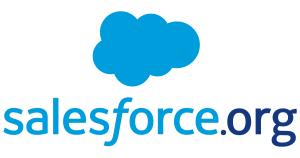The $115 million in Ice Bucket Challenge donations this summer are beginning to melt with initial approval of $21.7 million in funding for six projects.
The ALS Association (ALSA) in Washington, D.C., announced it would support six programs and initiatives to expedite the search for treatments and a cure for amyotrophic lateral sclerosis (ALS), also known as Lou Gehrig’s Disease. The funding also triggered $12.5 million in matching donations, for a total commitment of $34.2 million to the six projects, four of which involve global research cooperatives that would not have moved forward without ALSA funding, according to the organization.
ALSA’s Board of Trustees approved the funding at board meetings during September and plans to meet later this month to discuss and approve a comprehensive plan to be released in early November for the Ice Bucket windfall.
Donations from this past summer’s Ice Bucket Challenge have tallied some $115 million, including $100 million in the span of 30 days. The organization is still seeing a lift, mostly related to its ALS Walks, which are up 30 to 100 percent in participants and revenue, according to a spokeswoman. The ALS Association and its 38 affiliates nationwide typically generated annual revenue of less than $70 million before this past summer’s fundraising phenomenon.
The projects that will benefit from the initial funding include:
- ALS Accelerated Therapeutics (ALS ACT), an academic-industry partnership to accelerate treatments for people living with ALS; $10 million, with a $10 million matching gift from The ALS Finding a Cure Foundation.
- New York Genome Center (NYGC), $2.5 million by ALSA and its Greater New York Chapter to match a gift from The Tow Foundation.
- Neuro Collaborative, $5 million, combining the efforts of three labs focused on ALS (Cedars-Sinai in Los Angeles, UC-San Diego and the Gladstone Institutes, an affiliate of UC-San Francisco).
- Project MinE: A global collaboration that seeks to sequence the genomes of at least 15,000 people with ALS, $1 million in funding will allow it to expand to the United States.
- ALS Association Certified Treatment Centers of Excellence: ALSA will increase annual grants to the centers from the currently budgeted $12,500 to $25,000 per center (pre-2008 funding) for the next three years.
- Regulatory guidance to expedite drug development: Organizations involved with Alzheimer’s and Duchenne Muscular Dystrophy have seen benefits in working to develop guidance for companies to help navigate the regulatory system for approval of therapies, according to ALSA. The organization will develop similar guidance that currently does not exist for ALS.
“We recognize the sense of urgency felt by people living with the disease and their families and I want to assure everyone that our number one commitment is to making decisions that get treatments to patients in the fastest way possible,” said Barbara Newhouse, president and CEO of The ALS Association. “Our roadmap to treatments involves collaboration with other ALS organizations and with industry, university investigators, government agencies, pharmaceutical and biotech companies, and other nonprofit organizations committed to the fight against ALS.”










